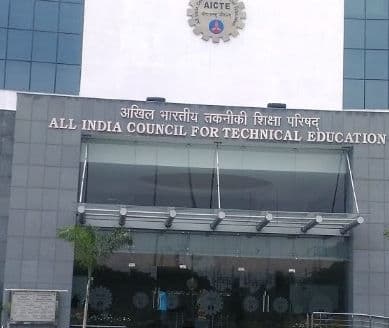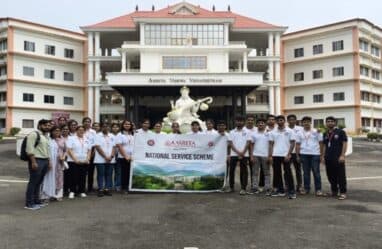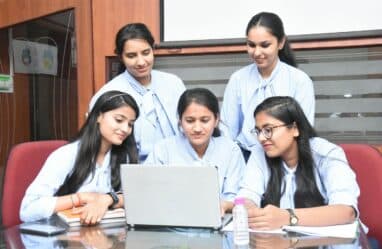AICTE 2020: Great, starts online scrutiny for fast approval

AICTE, All India Council for Technical Education has started checking of documents online in order to give approval to new institutes faster.
Sources say, this measure is being taken up by AICTE keeping in view the existing lock down due to outbreak of corona virus.


Things did not end with that even the process of granting approval to new educational institutions also has also considerably been delayed.
Now, AICTE is said to have brought into place online scrutiny of document and virtual inspection of the educational institutions that are trying to seek approval.
The documents that are required to be put up for seeking approval is the same as it was in the past, said sources from AICTE. The sources further say, online scrutiny was commenced as further delay could not be done.

AICTE is said to have assured that the online scrutiny will be equal to that of physical inspection. While AICTE has put a ban on approval of new engineering colleges in the recent past, there was some relaxation with regards to those areas which do not have government funded institute.
The relaxation was made available by AICTE even to those organisations that have been applying even before the ban was imposed.

Sources from AICTE say, institutes can apply for the approval, however, decision will be made after looking into every detail.
Revised academic calendar
AICTE also has released revised academic calendar for the academic year 2020-21. The revised calendar has been brought out owing the COVID-19 situation which has put the entire nation into a lock down.
As per this calendar, AICTE has asked the educational institutions to finish their first round of counselling/admissions on or before 15 August instead of 30 June as decided earlier.
Similarly, the second round of admissions, counselling has to witness completion on or before 25 August, as per the revised academic calendar brought out by it.

The last date to admit students against vacancies is 31 August of calendar year. The classes for existing students of technical education except for Post Graduate Diploma in Management or Post Graduate Certificate in Management (PGDM, PGCM) is 1 August.
Commencement of the academic session and the teaching process including Lateral Entry to Second Year Courses for newly admitted students will start on 1 September instead of 1 August of the calendar year.
The last date as per the revised academic calendar for cancellation of seats of PGDM/PGCM with full refund is 25 July instead of 30 June of calendar year. The last date for admitting students in open and distance learning courses is 15 August and 15 February.

The Institutions applied for Extension of Approval without any changes vis-à-vis last year approval, based on the self-disclosure have been approved by the Executive Committee and such Institutions may download the EoA letter from the AICTE web portal from 30 April after uploading the student enrollment details.
The information on suggestions with regards to admissions, counselling can be accessed at this link ‘https://www.aicte-india.org/sites/default/files/EoA%202020-21%20for%20the%20Institutions.pdf‘
All India Council for Technical Education was set up in November 1945 as a national-level apex advisory body to conduct a survey on the facilities available for technical education and to promote development in the country in a coordinated and integrated manner. And to ensure the same, as stipulated in the National Policy of Education 1986.
AICTE was vested with statutory authority for planning, formulation, and maintenance of norms and standards. It is also vested with providing quality assurance through accreditation.
The Government of India (the Ministry of Human Resource Development) also constituted a National Working Group to look into the role of AICTE in the context of proliferation of technical institutions, maintenance of standards and other related matters.
The Working Group recommended that AICTE be vested with the necessary statutory authority for making it more effective, which would consequently require restructuring and strengthening with the necessary infrastructure and operating mechanisms.
S Vishnu Sharmaa now works with collegechalo.com in the news team. His work involves writing articles related to the education sector in India with a keen focus on higher education issues. Journalism has always been a passion for him. He has more than 10 years of enriching experience with various media organizations like Eenadu, Webdunia, News Today, Infodea. He also has a strong interest in writing about defence and railway related issues.






